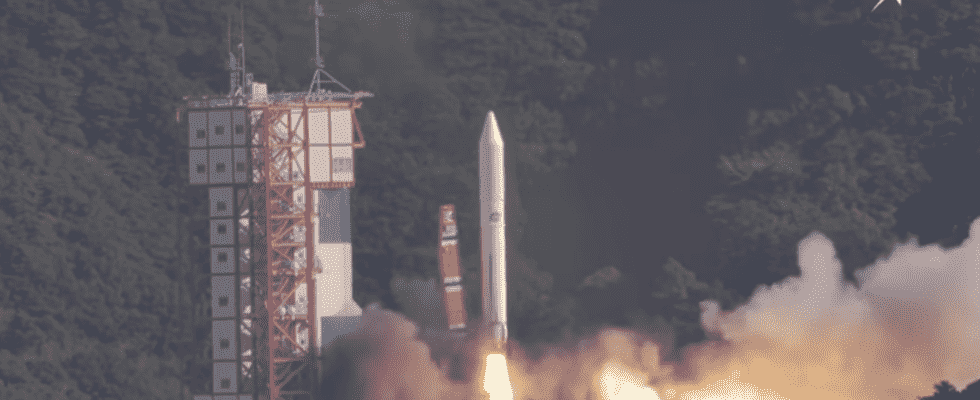A few minutes after taking off from the Uchinoura site, the sixth flight of the little Epsilon rocket ended badly, and the rocket was destroyed preventively. A difficult failure while the country, in full transition for its launchers, had not yet taken off anything this year.
It is also the first failure in 10 years for Epsilon.
No conclusions yet
It is a small disaster in the field of Japanese launchers, generally prized for its reliability. This October 12 at 2:50 a.m. (Paris time), Epsilon, the smallest of the orbital rockets operated by the Japanese agency JAXA, took off. Its solid-propelled engine ignited as expected, and the launcher left the historic site of Uchinoura, located in southern Japan (Kagoshima), before rising into the clouds and no longer being visible, giving way to telemetry data.
After the main booster was extinguished at T+1 m 56 s, the second stage took over. It was at the end of its action that the flight went wrong and that the satellites, still under the fairing, no longer had any chance of reaching orbit. What appears to be an attitude (orientation) problem doomed Epsilon, while the 3e floor couldn’t do much. At about T+7 minutes, the self-destruct command was activated (it is not known if it was automatic or from the ground control center). No element was able to reach orbit, and the debris crashed into an isolated area of the Pacific.
8 satellites fall into the water
While the investigation into this failure has only just begun, it is a blow for the teams of the 8 satellites on board this flight, part of which were government satellites, and another part came from commercial companies. The main payload was the 110 kg RAISE-3 satellite, a functional cube containing itself 7 different experiments to be implemented in low orbit (its mission was to last 13 months). There were also two small satellites equipped with radar antennas as well as several other payloads in CubeSat format.
This also represents a setback for light satellites in Japan. Epsilon, who flew for the 6e times only since 2013, is the only light launcher in the country, which does not yet host a NewSpace company capable of taking over.
It is even possible that this failure actually marks the end of Epsilon’s career in its current version. Indeed, the Japanese launcher sector is in full transition. As in Europe with Ariane 6 which succeeds Ariane 5, in Japan, it is H-3 which takes up the torch after H-2A and H-2B. This imposing rocket should fly for the first time by next spring and has the option of 2 or 4 solid boosters. These will be found on the first stage of Epsilon-S, a modernized version of the small launcher. In any case, JAXA would probably have preferred a smoother transition!
Source : NASA Space Flight

1